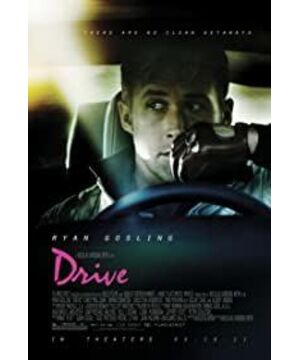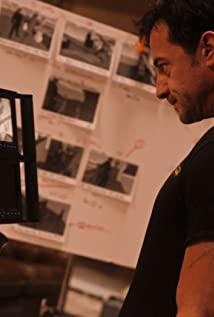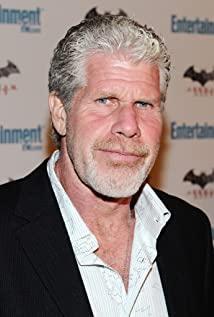The name of the film is "Drive", which is translated as "Desperate Driving" in China. The film premiered in the main competition unit of the 64th Cannes Film Festival in 2011. The director won the best director award at the award ceremony.
Commander Gao plays a cold-hearted driver with multiple identities. In order to save the mother and son of the neighbors who have been targeted by the gang, he takes risks at all costs and sinks into the quagmire of death.
Just by watching this old-fashioned plot, you may not have the urge to watch this film.
But this film does not win by plot, it wins by replacing the words of the characters with most of the lens language, telling an unusual gangster story.
The ability to shoot an old-fashioned story and conquer the Cannes judges shows the director's ability to control the camera.
In order to let the camera talk more, the director disdain to let Commander High say one more line.
"There are more than 100,000 streets in this city. You don't need to be familiar with them. Tell me the time and place. I will give you five minutes. No matter what happens in these five minutes, I will listen to you. No matter what you do. It happens outside these 5 minutes. In any case, you have to rely on yourself.” In
the first scene at the beginning, the words that Commander High said during the negotiation with the client should be the longest line he said in the film.
Calmness, indifference, and every word is the first impression of Commander Gao.
When he arrived at the place agreed with the robber, he only gave the other side a look, and the cooperation began.
Then Sili picked up the watch and timed it slowly, tuned the walkie-talkie to the police channel, and turned the toothpick hanging from his mouth while listening.
When being pursued by the police, the camera kept switching back and forth between the two robbers in the car, Commander High and Commander High. The flickering lights dangled the faces of the robber and Commander High.
The former looked flustered and worried.
The latter always had a paralyzed face with a fierce look in his eyes, and he slammed the accelerator to the end without saying a word, and easily dumped the policeman.
When Commander Gao and Murray fell in love, the director preferred to use the lens to depict the ambiguous state of the two people rather than words.
She smiled when she met each other.
The demeanor and action at the time of the heart.
With the gentle soundtrack and warm-toned light, it feels like Wong Kar-wai.
There is also a very classic scene. In the elevator, there are only Commander High, Murray and the gangster.
Commander High glanced at the gun in the opponent's pocket, and calmly guarded Murray behind him.
The camera slowed down and the music cut in. The light in the elevator changed. The side of the gangster dimmed, and the light was all concentrated on the lovers.
Commander High turned around and kissed, then looked at each other affectionately.
The music stopped abruptly in the next second, and he quickly turned around to fight the gangster.
After the frightened Murray exited the elevator, Commander High, who had just killed someone, turned to look at his beloved woman.
The elevator closed between their eyes, and it also heralded that they would part ways.
No one said a word in the whole scene, and the description of the whole scene was completed by smooth editing.
Seeing this, we basically have a more complete understanding of the driver's personality.
This talented rider is stationed in the city alone. The iconic symbols are the toothpick hanging from his mouth and the Scorpio printed jacket that doesn't leave his body.
During the day, he was a car repairman and movie stunt stand-in, and at night he became a robber's driver.
People with multiple identities are destined to exercise restraint in life.
When the driver has always been
chased by others with his cold face and unspoken personality , he is still restrained.
He briefly confronted the gangster and quickly killed the opponent. During the whole process, his expression was calm.
Seeing him dealt with so skillfully, killing is definitely not a novice.
He stomped the gangster's face in the elevator, with a cruel expression, as if the other party was just garbage that had to be disposed of, and there was no need to hesitate.
The colder the surface, the more fierce inside.
But facing the weak mother and son, he showed a little rare warmth instead.
From rejecting the gangster’s invitation to cooperate to taking the initiative to take risks in order to help mother and child escape danger.
He exists silently at the border between justice and evil.
For such a complicated character, the commander-in-chief is just right. In my impression, that handsome face in front of the camera that tried all his best to seduce her girl, actually has such a cruel side.
Even without the speed and passion that make people bloody, the violent scenes are crisp, calm and restrained. You can see Gao Commander Biao's acting skills, which is also very cool.
View more about Drive reviews











